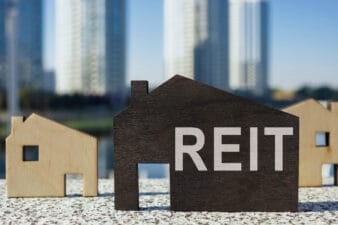A lot has been made about CERB and what will happen after it ends. CERB has been extremely important to the millions of people who were affected by the shutdown of the economy.
With so many people out of work at once, the government had to step up. It did, and the CERB was born.
Now, after months of the pandemic and support for the government, this stimulus is ending. The economy has had a lot of time to recover. However, there is still a tonne of unemployment, and we’re now entering the second wave of the pandemic.
So is it possible that as CERB ends, it causes a stock market crash?
CERB ending: What are the consequences?
While many people are now without this stimulus, they still have unemployment options or the Canada Recovery Benefit (CRB).
CERB has been great and extremely important for getting money in the hands of Canadians. However, it was always meant to be an emergency measure. Furthermore, there are certain circumstances in which the incentives created by CERB don’t work in the economy’s favour.
By providing companies with the wage subsidies, it directly incentivizes companies to create more jobs, which is exactly what we need today.
So, in my opinion, in the bigger picture, the CERB ending could actually a positive for the economy.
However, that doesn’t mean that the CERB ending couldn’t cause a market crash.
Likelihood of a market crash
The problem with CERB ending is it comes at a time when the market is starting to get more and more volatile.
Several countries around the world are entering the second stage of coronavirus. Furthermore, every economy is still trying to cope with the effects of the first wave.
Then, of course, there is the U.S election in less than six weeks, causing a tonne of uncertainty in U.S. markets.
So it’s possible if we see a selloff north of the border, it could be accelerated due to CERB ending.
Canadians know that if they need cash, they may have to sell stock to do so. So if the market is already selling off, this could help fuel the fire.
So even though the CERB ending and the shift to more focus on creating jobs will help the economy in the medium term, with all that’s going on in financial markets right now, it could initially be a bit of a drag.
Prepare yourself for CERB ending
Rather than selling stocks to raise cash, another way to go about it is to make sure your portfolio is invested in high-quality, dividend-paying stocks.
This way, each quarter, your portfolio is generating passive income, and you can use that cash to reinvest, or for any emergencies that may require your capital.
One of the most reliable dividend stocks on the TSX to consider is BCE Inc (TSX:BCE)(NYSE:BCE). The company has experienced some negative effects on its business due to the pandemic, but for the most part, its operations have been robust.
This resiliency is due mainly to its diversified business segments and the fact that telecommunications is a staple in our economy.
The fact that BCE can generate such strong cash flow ensures that its 6% dividend will remain safe. That’s why buying top blue-chip stocks like BCE is so attractive for investors seeking to build up a stream of passive income.
Plus, over the long term, you have exposure to the significant growth potential that a company like BCE has. And that growth potential has gotten a lot more appealing in the last few years, with the rise of 5G technology.
You can’t go wrong owning a portfolio of high-quality TSX stocks like BCE, so if you’re worried about the CERB ending, you may want to consider adding a few of these investments.
Bottom line
It’s unlikely that the CERB ending will cause a market crash on its own. Having said that, it could cause other issues that help contribute to one.
For investors, though, all you can do is control the stocks you own. So make sure your holdings are always of the highest quality.







